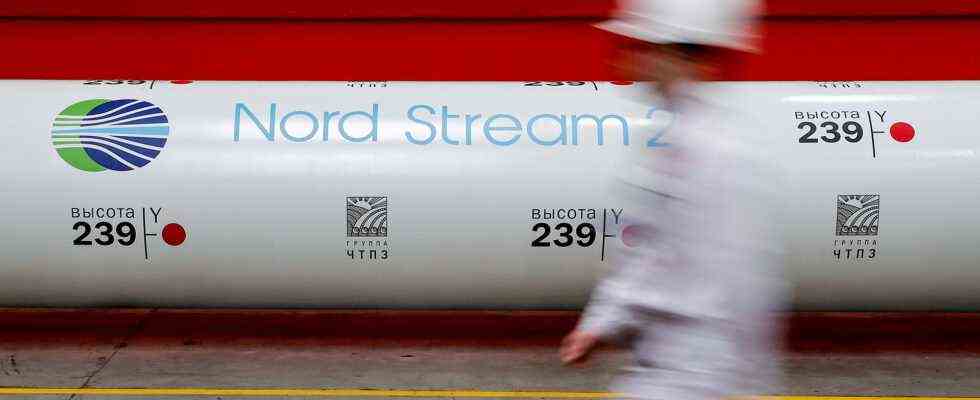Status: 16.12.2021 3:03 a.m.
In fact, gas should have been flowing through the Nord Stream 2 Baltic Sea pipeline long ago. In Brussels, the project continues to be viewed critically. At the EU summit today, how to deal with Russia is to be discussed. It’s always about Nord Stream 2.
Annalena Baerbock did not want to position herself clearly in Brussels this week. But with the new Federal Foreign Minister, the chances for the 1230-kilometer-long double tube on the bottom of the Baltic Sea have by no means improved.
The Federal Network Agency has just suspended the certification process because there are clear requirements in European energy law, with a view to unbundling and other construction issues.
Unbundling, in German: unbundling, means in this context that the Russian Gazprom Group must not be the sole gas supplier and operator of the pipeline at the same time. In addition, instead of Nord Stream 2 AG, which is based in Switzerland, an operating company certified under German law that is independent of Gazprom is required.
If these requirements are met, Nord Stream 2 can of course go into operation, says the Green EU parliamentarian Reinhard Bütikofer. “But until now the operating company has made it clear again and again that it actually does not intend to fully meet the requirements.”
Sanctions threats from Washington meet with resistance
The Greens and their foreign minister are hiding behind European law in order not to have to talk about the German-Russian relationship, says Martin Schirdewan. Even for the leader of the Left in the EU Parliament, the meaningfulness of the pipeline is questionable – but above all because it has to be about getting away from fossil fuels.
As long as these alternatives and also the capacities in the field of renewable energies are not guaranteed, Annalena Baerbock’s policy means that only Russian natural gas will be exchanged for US fracking gas.
The fact that Washington repeatedly threatens sanctions has met with resistance from many MPs of various political stripes. Maximilian Krah is a member of the EU Parliament for the AfD and is convinced that the main focus must be on German interests.
For this reason we support Nord Stream 2. And we are doing this in accordance with all previous federal governments and are also confident that the approval will come.
Nord Stream 2 as leverage against Russia
Critics of the pipeline such as CDU parliamentarian Michael Gahler see Nord Stream 2 as a geopolitical project by Russia that is more of a threat to Europe’s energy security. The foreign policy spokesman for the EPP, the largest group in the EU Parliament, does not want to venture a prognosis as to how things will continue.
That also depends to a certain extent on the formation of political will within the new federal government. Two of the three coalition parties are quite skeptical of this pipeline. And then it depends crucially on the Russian behavior.
Of course, the economic aspects always depend on the political framework, says Bernd Lange. The SPD politician is chairman of the EU Parliament’s trade committee and argues that gas will be needed in a transitional period to secure Europe’s energy supply.
Second, the political implications: it is absolutely clear that if this pipeline is used to exert political pressure on Ukraine, or if it is used as a weapon against Ukraine, it will not happen.
In view of the Russian threats towards Ukraine, the traffic light coalition could come to this point sooner than expected. It remains to be seen whether all 27 EU member states see it that way. Austria’s Chancellor Karl Nehammer has already spoken out against using Nord Stream 2 as a means of pressure against Moscow in the Ukraine conflict.
The problem with Nord Stream 2
Matthias Reiche, ARD Brussels, December 16, 2021 6:06 am

